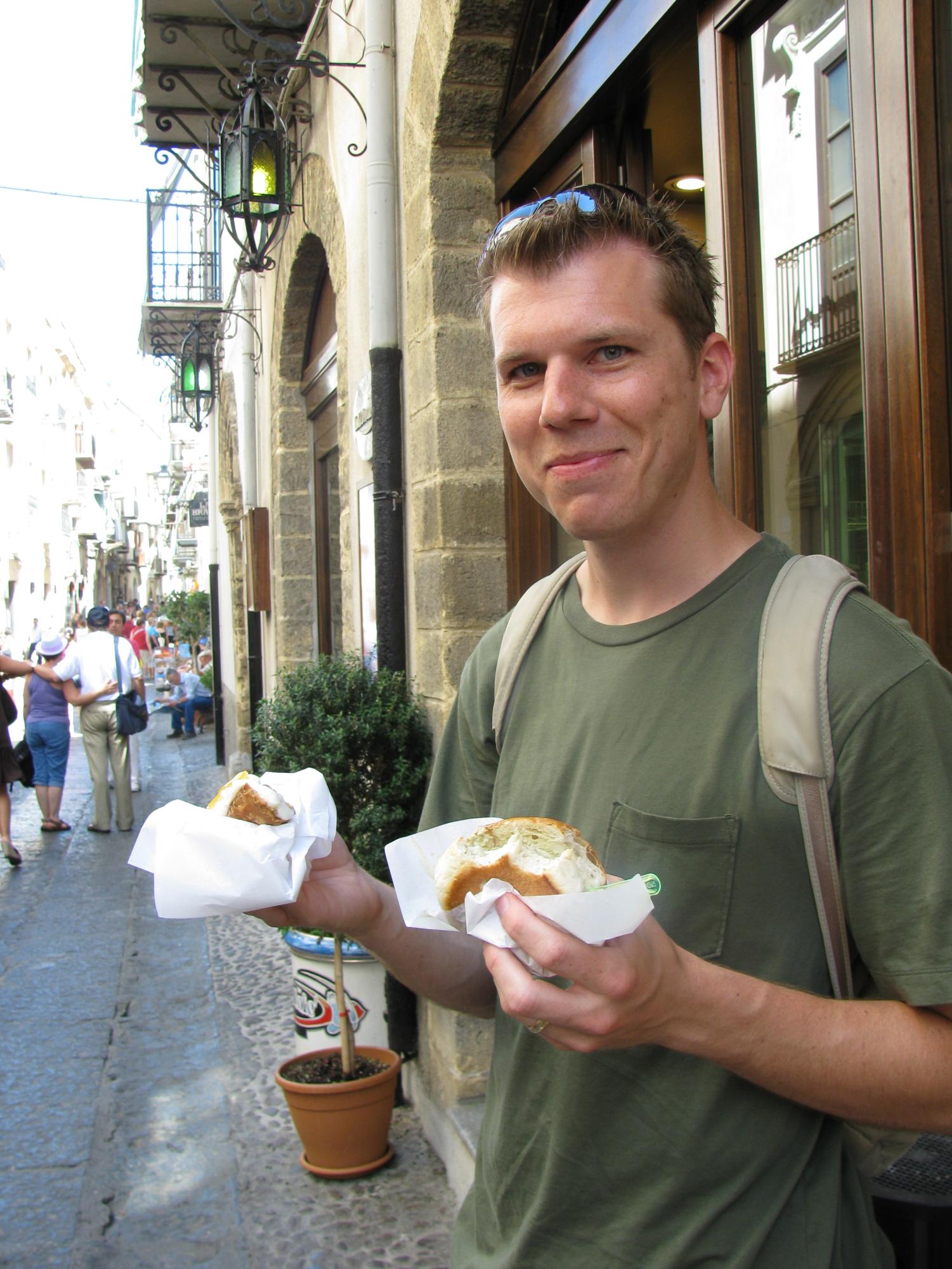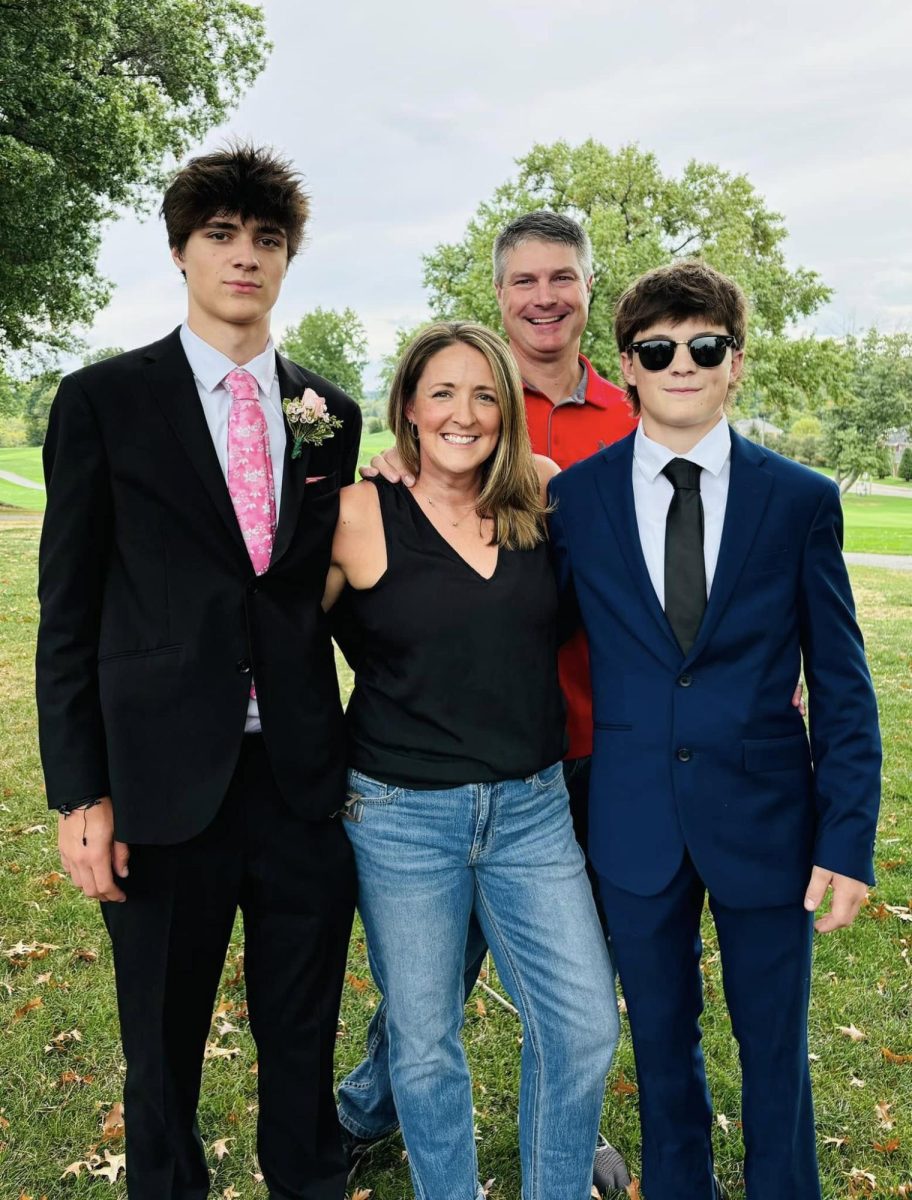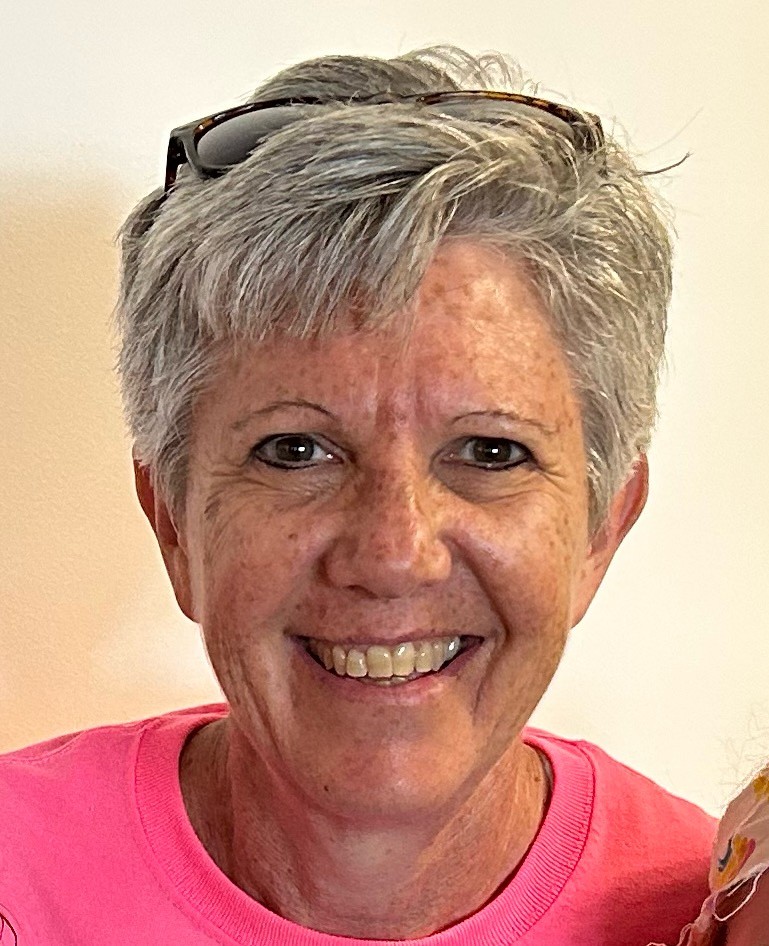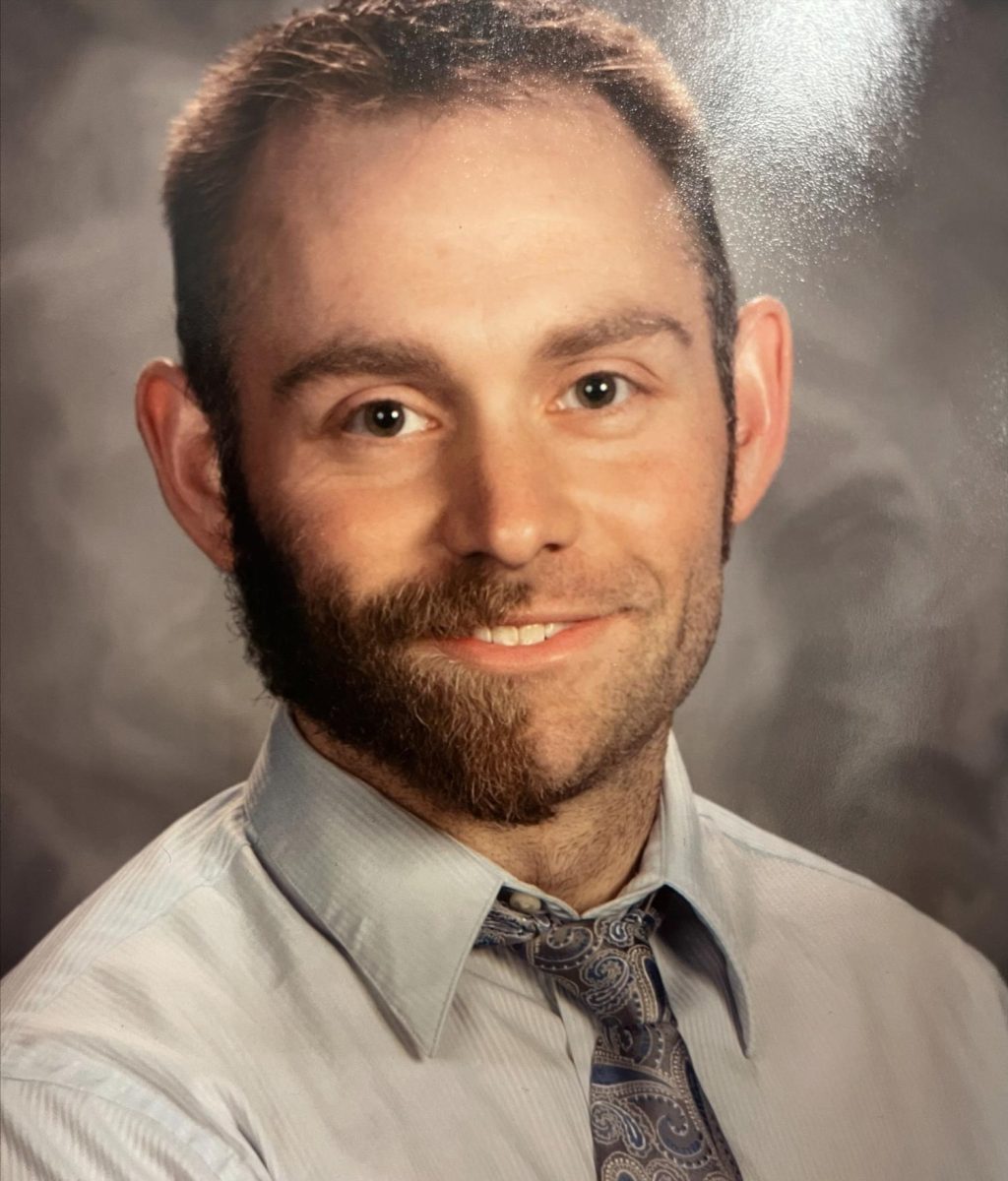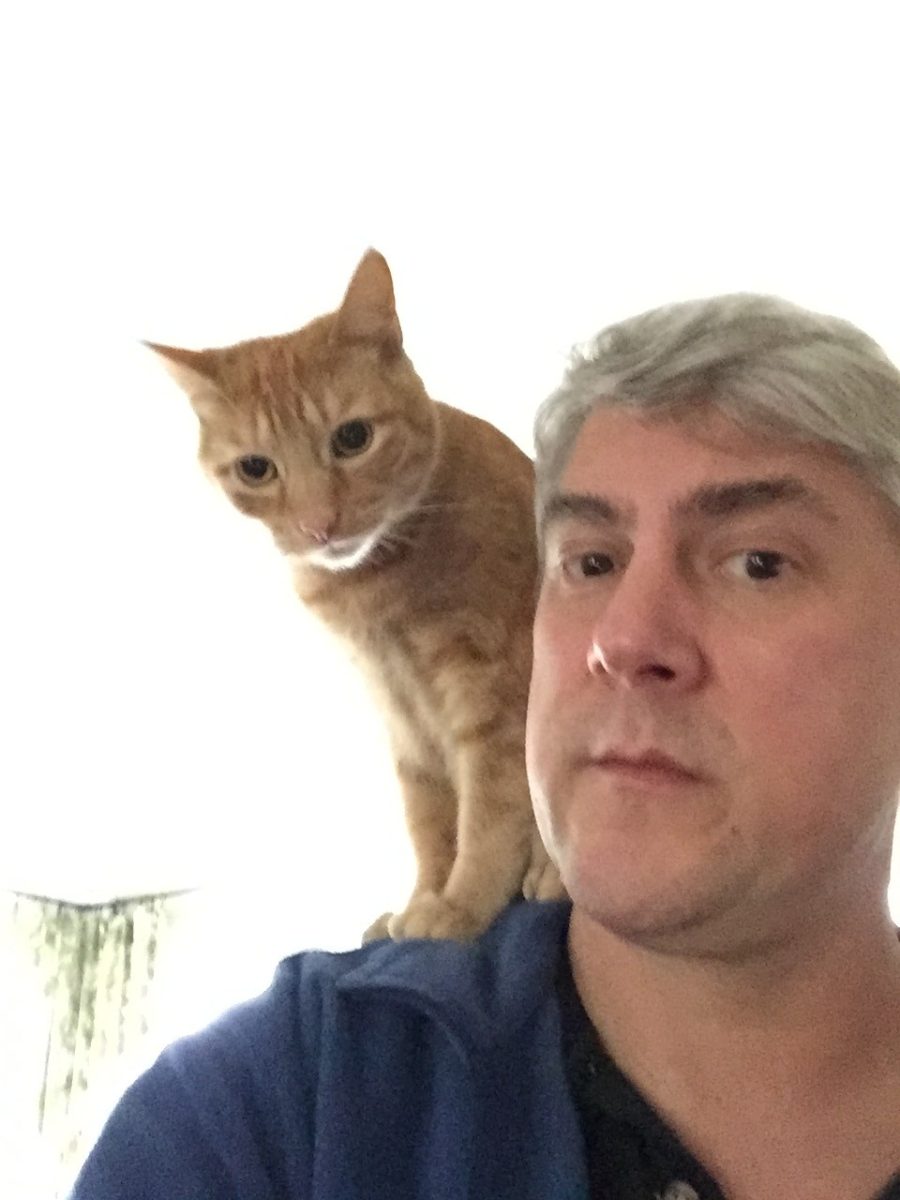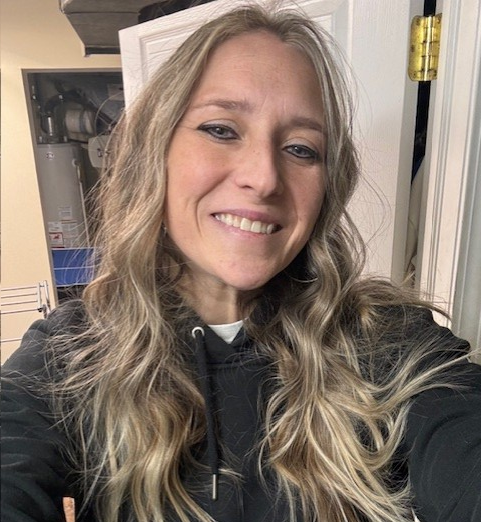For this iteration of Shaler’s teacher feature, we chatted with Mr. Matt Hiserodt, one of our history department’s most seasoned explorers and the man of many costumes.
Q: What would you say is the best concert you’ve been to?
A: The best concert I’ve ever been to was back in 2002. I went to something called the Roskilde Festival in Denmark. It’s a yearly music festival, sort of like the Woodstock of Northern Europe. Envision a field of tents where people are camped out for like a week and there’s five or six stages of just nonstop music. I have a good friend, Jacob, who’s Danish and had been an exchange student at North Allegheny when I was in high school. I kept in touch with him, and so when I was in college, I went over and I visited him. We traveled around, and I remember I showed up and he’s like, “I got these tickets for you to go to this concert next week.” Again, it’s like Woodstock; there’s no showers. You’re basically living in the mud. It’s disgusting and dirty, but it was such a cool cultural experience.
Q: What was your fattest moment?
A: When I was in high school, the Quaker Steak and Lube up in Cranberry used to have all you could eat wings on Tuesday nights for like $14, and so I remember as a lacrosse team we would all go up there sometimes after practice. One time I ate 68 wings, and I felt sick for days afterwards.
Q: What is your favorite student slang, and could you use it in a sentence?
A: I don’t really use student slang and I try to go out of my way to not use any student slang. For instance, I cannot stand the use of the word “bro” on a regular basis. There’s nothing you can say to be more unemployable than saying the word “bro” in every other sentence. So, when someone uses too much slang, I try to remove myself from the conversation immediately.
Q: What inspired you to become a teacher?
A: I was very much like my parents. My parents actually met at a singles table on a cruise ship back in the 1970s. My dad was living in Indiana while my mom was from the New York City area, and they met on this cruise. So when I was growing up, they both always loved traveling, so they always exposed my sister and I to a lot of traveling and they always encouraged us to travel and take advantage of opportunities. When I was 16, I became an exchange student in Argentina for a summer. I went to a business school and the main subject there was English. Our English teacher quit abruptly; it was a case where she just walked off the job. They were in dire need of an English speaker, and they didn’t want to fall behind in their studies compared to their competition at other high schools, so I kind of just became the de facto teacher for the remainder of my stay there. That experience especially sparked something in my mind that said, “hey, you know, this is something I’d be interested in pursuing more as a person.”
Q: Given that you’re an accomplished traveler, what are some of the craziest places you’ve visited?
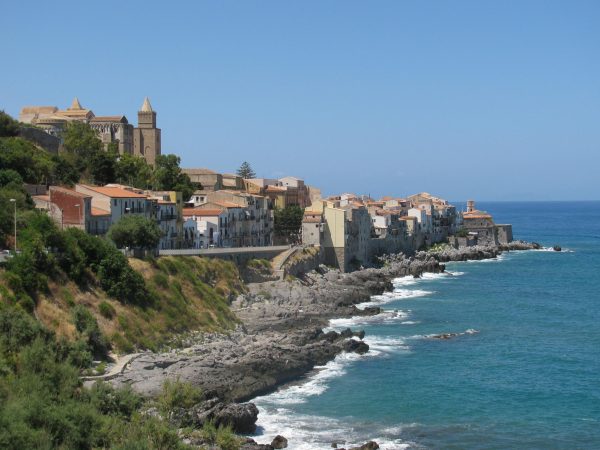
A: We went to a place called Cefalù in Sicily, which is like one of these little towns that you see the postcards for. In this case, it was the cliffs right up to the ocean. It was really neat because there’s a big cathedral right near the beach that was built by the Normans. When they built the cathedrals, they basically built them to double as castles and defensible positions. So that was a place I remember my wife promised me, ‘before we die, we have to come back here again.”
Q: What is the most irresponsible purchase you’ve made?
A: My wife will always tell you that I’m the cheapest person on earth. Therefore, I don’t make many irresponsible purchases. I always typically think things through. I’m not really spontaneous in that regard. However, I’ve always made things like travel a priority in my life. So there’s been many times where I probably should spend money on fixing something at my house or doing something important, but I tend to always spend it on trips and stuff. I don’t know if it’s necessarily a bad thing, but that’s just where my priorities have always been.
Q: In your opinion, what are the most rewarding topics for you to teach?
A: I’ve always been really fascinated with Russian history just because I feel like there’s just so much hardship there throughout the centuries and there’s so much extremeness in what people from that nation have experienced through the generations. I find that to be a really fascinating topic, and obviously, you know, understanding Russian culture and understanding Russian viewpoints has been something that’s been super important from a foreign policy and international relations standpoint for basically my entire life.
Q: Could you tell the story about the Jamaican pig that can chug beers?
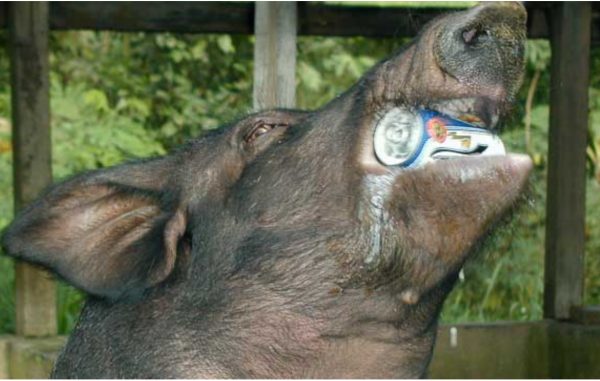
A: Ha ha, yeah. When people go to Jamaica as tourists, they rarely go and experience the real Jamaica. They don’t really experience the harsh reality of life in a lot of these Caribbean nations since they just stick to the resort. I was in Jamaica years ago on vacation, and we were at a resort. I remember the front desk always told us, “Don’t leave the resort. Please stay,” but I really wanted to leave the resort and see the real Jamaica. So I had them call me cab and I told the cab driver, “I want you to take me to the best jerk chicken place around where I can get some authentic Jamaican jerk chicken.” We were dropped off at what I would call a village that was pretty much just a bunch of shanty-like dilapidated huts. I went out and I placed my order, and as we’re sitting there waiting for her to cook the food, I looked over, and there’s this pig pen with a fence around it. It had a sign that said you could take a beer and feed it to the pig for a dollar. Obviously I wanted to do it, but my wife didn’t want me to do it. She was kind of embarrassed. When we were sitting there waiting, another group of four showed up. They had no such reservations. They paid the dollar and the owner of the pig went to get their beer, threw it into the pen, and from the shadows of the pen lumbered the most grossly obese farm animal I’ve ever seen. The thing kind of just staggers up, bites into the can and sucks out all the beer from it, throws it off to the side and then lumbers back into the shadows and disappears again. What struck me about that experience was that feeding that obese pig one dollar at a time was probably that guy’s only source of income. It really speaks to the depths of poverty that people in a lot of those countries live in.
Q: As a history teacher, who’s the most over-hated historical figure?
A: Well I always give a shout out to Ivan the Terrible because you look at many famous figures in world history and he’s the only one I can think of that has the label “terrible” added to the end of his name. Sometimes you’ll get these little Charles the Fat or Charles the Bald or, you know, some of these other derogatory kinds of historic nicknames, but he’s like the only one that really invokes that, “this guy must have done terrible, terrible stuff,” kind of feeling. In reality, he was somebody that, for all intents and purposes, was cited as being the founder of the Russian state. He did a lot of positive reforms early in his life, and while he did kill and terrorize thousands of people, I would argue that his death very much pales in comparison to many other historical figures that we view as being great. I always like to point at somebody like Alexander the Great. We say, well, Alexander the Great, he spread Greek culture throughout the eastern world. He did that because he killed all of the people that were living in those places and brought in a bunch of Greek people to settle there. Even though he was responsible for probably millions and millions of deaths and systematic killing, we call him Alexander the Great. So yeah, I think Ivan the Terrible gets a lot of flack in part because of some of his personal and mental issues that he had later in life, which are pretty well documented. There’s also the whole notion that history is oftentimes written by the victors, and when Ivan died, eventually his generational line died out. The Boyer class, who were the people he terrorized, were the ones left behind to write history. So I think that factor skews our interpretation.
Q: You have a rare free night yourself with no responsibility. What are you choosing to do?
A: I would probably grab a tent and a sleeping bag and either throw it on the back of my bike and ride somewhere and camp out or throw it in my hiking backpack and hike somewhere.
Q: Is there a recent song that you really like?
A: I’ve never been huge into music. I’m more of a podcast guy and the best one for anybody to check out as a history lover is Dan Carlin’s Hardcore History because this guy just does an insane amount of research and he’ll put out a podcast like once every three or five months and they’re usually like 6 hours in length or something. I literally just finished listening to his one all about the Christianization of the Norse and kind of the end of the Viking age.
Q: If you could live somewhere that isn’t Pittsburgh. Where would you choose to live?
A: I always enjoy going to different places. That’s how I always am with vacation and stuff like that. I never want to go back to that same place more than once. Personally I would love at some point in my life to just get a camper and go. I’d like to be able to just go wherever the heck I wander into. My wife thinks I’m crazy. If I crossed the United States, from coast to coast, I would just kind of take my time and experience things. So I guess if I had to settle permanently somewhere else, it would just be somewhere hot. Pittsburgh is not always the most conducive place to enjoy the outdoors a lot.
Q: What would your last meal be?
A: So, first of all, it has to be multiple courses because there’s many things I love from a culinary perspective. I would definitely want a slice of legit New York style pepperoni pizza from the New York City area. You know, we’re talking about big slices so I’ll need at least a piece of that. I would like some sushi, specifically something with a nice big chunk of tuna on it. Finally, I would like a really good steak, maybe with some horseradish and potatoes.
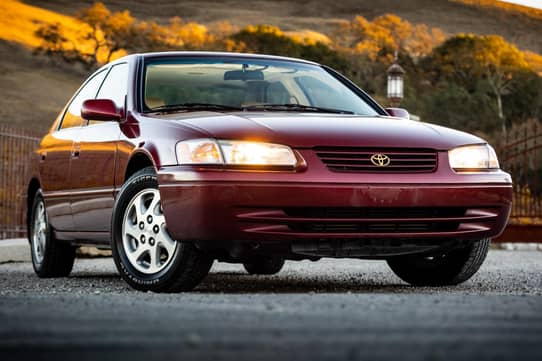
Q: What was the first car you bought?
A: It was a 1999 red Toyota Camry. Driving a family sedan is not what I would call the coolest ride around, but I remember I got a killer deal on it when I was in high school and I worked a lot of the time and it was super reliable. I had that car forever. I put over probably 175,000 miles on it. I would still be driving it today if it wasn’t for the fact that I needed more room.
Q: What’s the hardest you’ve celebrated after your team won?
A: So, as you have kids, you care less about professional games and you care more about what your kids are involved in. Probably the biggest celebration from a competition standpoint was actually very recent, and it has a Shaler connection as well. So, my daughters are both really into Irish dancing of all things. Yeah, not dancing, Irish dancing. It seems like such a niche kind of activity, but there’s actually a really strong Shaler connection with it. There’s basically one Irish dance school in the entire Pittsburgh area, and it’s located right across the street from my house. Years ago, I had a girl in world cultures class, whose name is Melissa Barden, who is now a teacher in her own right, and she teaches Irish dance at that school and teaches my daughters. A few years ago there was a Shaler graduate, Emily Egan, who currently teaches Irish dance there, and then there is another former student of mine, Kennedy Quinn. Her sister is still in school here, Hillary. Kennedy is like a world class Irish dancer; she would literally go over to Ireland and Scotland as a performer. We were at the big yearly regional competition and my youngest daughter, Nora, actually came first place in the entire region. So from Pittsburgh all the way over to the Dakotas, down to St Louis and Louisville, up to Minnesota. We’re talking a huge regional and she got first overall, which I think has only happened like three or four times in the history of this school that one of their dancers came in first place. It was cool because we were celebrating with these teachers that were all former Shaler students that I taught for the most part. So it was very rewarding that I taught them and then they’re turning around and teaching my daughters and we’re celebrating the successes together. So that was a ton of fun.
To give some context for these last few questions, last year Mr. Hiserodt found himself in need of emergency heart surgery towards the middle of the 22-23 school year.
Q: When did you find out you needed heart surgery?
A: I went in for my yearly checkup last September. I had always gone in for my yearly check-up and I had always been in good health. My PCP listened to my heart, and she asked if I ever had a heart murmur. She then did my blood pressure and my blood pressure was up, which has never been the case. I’ve always run, I’ve always biked, I’ve always been very active, and I’ve always had really good blood, but all of a sudden it became sky high. So then, it was a matter of additional doctor visits, and every single test that came back, indicated worse and worse things. I arrived at a point where something’s wrong, really wrong, or super wrong. Eventually, they diagnosed me with having torn chords on my mitral valve. They don’t know why or how it happened. With a lot of people, it’s just a genetic predisposition where it’s a case where that tissue breaks down more easily than other people’s tissue. As a result, my blood was pumping out of my heart and then flowing right back into my heart, which was adding a lot of extra pressure. It was the left atrium, in particular. This was something where I didn’t know I was even having a problem. I had no symptoms or anything, and so the doctor gave me the choice. The doctor said, “Well, you can either do this now or we can wait a year or two or three years,” but it’s not going to fix itself. And so that’s what I was just like, “All right, let’s do it”.
Q: What was heart surgery itself like?
A: When I had heart surgery last March, I didn’t have a true open heart surgery, instead, I had what they call a robotic, minimally invasive surgery. This is where they basically cut a bunch of holes by your armpit. They put scopes in there and then they do one big slit, right around the area between your armpit and your nipple. They put in this robotic arm-like thing and the surgeon sits in a sort of video game pod over in the corner. He’s not even near you whatsoever. When he’s doing the surgery, this thing gives him a 360 degree view around him and he uses these little hand levers and foot ladders to control the machines. The surgeons come across the chest and then they collapse the lung so they can get across without cutting the sternum. Next, you’re hooked up to a heart lung machine. It’s basically a thing that goes into your main artery in your groin and then they go into your neck and so they circulate the blood through. Your blood oxygenates it in this machine, and it comes back in, which allows them to stop your heart and actually work on it while keeping you alive. So it’s like open heart surgery, but without actually opening you up. It was basically the same thing. So, it was intense for sure. I mean, I think the procedure itself was like 5 hours long. I was supposed to be in the hospital for three days and I ended up having internal bleeding problems so they had to then go in and bring me into emergency surgery. The next day I end up losing about three pints of blood. You only have eight pints of blood in your body. So I had three blood transfusions to rush me into emergency surgery to fix that.
Q: How long did the recovery take from a surgery like that?
A: I ended up being in the hospital, I think, for eight days instead of three, and I was in the cardiac ICU for most of those, which sucks because they don’t let you do anything. You literally can’t go to the bathroom without buzzing the nurse. You can’t walk around without a nurse. It was funny because I actually had a former Shaler grad who was one of my ICU nurses — small world. I would say the biggest challenge for close to the first month after heart surgery was that any time that you do anything physical, it just wipes you out. It would be something where I would go on a walk in the morning around my neighborhood because they told me to be walking as much as possible. So I go on a walk for maybe a few miles and then I would come home and sleep for 2 hours. Then I wake up, eat lunch, go on another walk, come home and sleep for 3 hours. So, like, that was pretty much my entire first month after surgery. The second month was just a matter of, again, building myself up. I started feeling better. I started to do some more hiking, even if I didn’t run right away. I still had all these incisions, but I was really getting a lot more physically active, so I came back last May just for the end of the school year. I did about a month of cardiac rehab last June, and that really helped because then I was on a treadmill three times a week with monitors and kind of just gradually ramping stuff up. People were monitoring to make sure I wasn’t doing too much. Finally I could get back into biking, which I love and by the end of June, I felt pretty much 100%. It was a long road for sure. It was not something I would ever want to repeat or would ever wish on my worst enemy.



